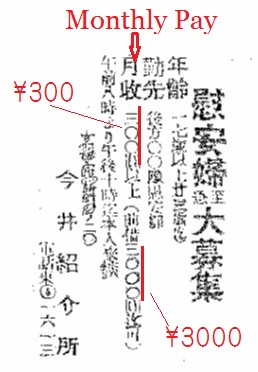Post by thirdterm on Feb 6, 2015 5:59:21 GMT
Prime Minister Shinzo Abe of Japan on Thursday criticized an American textbook that he said inaccurately depicted Japan’s actions during World War II, opening a new front in a battle to sway American views of the country’s wartime history. Speaking in Parliament, Mr. Abe pledged to increase efforts to fight what he called mistaken views abroad concerning Japan’s wartime actions, when the Japanese military conquered much of Asia. He singled out a high school history textbook published by McGraw-Hill Education that he said contained the sort of negative portrayals that Japan must do more to combat.

In particular, he objected to a description of women forced to work in Japanese military brothels during the war, a highly fraught issue in Japan and elsewhere in Asia. The textbook is used in some public schools in California. In the past few years, Japan and South Korea have increasingly taken their rivalry to the United States, trying to sway American public opinion in their favor. Korean-American groups have used their growing political clout to amend textbooks and erect monuments promoting Korean views of historical and territorial disputes with Japan. Many scholars say that while there is no evidence that Japanese soldiers forcibly rounded up Korean women, many former “comfort women” have testified that they were tricked or otherwise trafficked to work in the brothels against their will.
www.nytimes.com/2015/01/30/world/asia/japans-premier-disputes-us-textbooks-portrayal-of-comfort-women.html
The American high school textbook, titled “Traditions and Encounters: A Global Perspective on the Past, states that the Japanese Army forcibly recruited as many as 200,000 women to serve in military brothels. But many academic historians say that there is no historical evidence that Japanese soldiers forcibly rounded up Korean women, contrary to the testimonies of former comfort women who claim that they were kidnapped against their will either by the police or military officials in Korea. But there is no denying that the Japanese military directly organised the wartime prostitution ring through civilian contractors. Prospective comfort women were typically offered around 300 Japanese yen or $150 (equivalent to $15,000 today) in advance, while a normal soldier only earned $15 per month at the time, and it was an attractive offer that poor Asian women could not refuse. In some cases, women were sold into prostitution by their impoverished families but the majority of comfort women were voluntary participants, who had to repay their family debts, and they could borrow up to 3,000 Japanese yen in advance for this purpose (see the following wanted ad.) Furthermore, the co-author of the textbook is written by a scholar of German history who admitted that he knew little about East Asian history, which was why he committed some factual errors.
Herbert Ziegler:I’m not a specialist in East Asian history. I teach world history, meaning I know very little about many things. I’m largely a scholar of German history. Germans had to deal with their past, especially during World War II. It wasn’t easy, it took time, but by and large the Germans have acknowledged and come to terms with the ugly parts of their past. The Japanese never have.


In particular, he objected to a description of women forced to work in Japanese military brothels during the war, a highly fraught issue in Japan and elsewhere in Asia. The textbook is used in some public schools in California. In the past few years, Japan and South Korea have increasingly taken their rivalry to the United States, trying to sway American public opinion in their favor. Korean-American groups have used their growing political clout to amend textbooks and erect monuments promoting Korean views of historical and territorial disputes with Japan. Many scholars say that while there is no evidence that Japanese soldiers forcibly rounded up Korean women, many former “comfort women” have testified that they were tricked or otherwise trafficked to work in the brothels against their will.
www.nytimes.com/2015/01/30/world/asia/japans-premier-disputes-us-textbooks-portrayal-of-comfort-women.html
The American high school textbook, titled “Traditions and Encounters: A Global Perspective on the Past, states that the Japanese Army forcibly recruited as many as 200,000 women to serve in military brothels. But many academic historians say that there is no historical evidence that Japanese soldiers forcibly rounded up Korean women, contrary to the testimonies of former comfort women who claim that they were kidnapped against their will either by the police or military officials in Korea. But there is no denying that the Japanese military directly organised the wartime prostitution ring through civilian contractors. Prospective comfort women were typically offered around 300 Japanese yen or $150 (equivalent to $15,000 today) in advance, while a normal soldier only earned $15 per month at the time, and it was an attractive offer that poor Asian women could not refuse. In some cases, women were sold into prostitution by their impoverished families but the majority of comfort women were voluntary participants, who had to repay their family debts, and they could borrow up to 3,000 Japanese yen in advance for this purpose (see the following wanted ad.) Furthermore, the co-author of the textbook is written by a scholar of German history who admitted that he knew little about East Asian history, which was why he committed some factual errors.
Herbert Ziegler:I’m not a specialist in East Asian history. I teach world history, meaning I know very little about many things. I’m largely a scholar of German history. Germans had to deal with their past, especially during World War II. It wasn’t easy, it took time, but by and large the Germans have acknowledged and come to terms with the ugly parts of their past. The Japanese never have.


